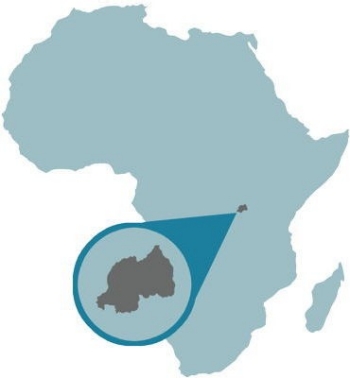MIGS has responded to these complex problems by developing some novel approaches. Chalk and Kyle Matthews, W2I’s senior deputy director, travelled across North America to meet American and Canadian officials who had been involved in shaping their governments’ responses to Rwanda in 1994. “We found that politicians rarely look beyond election cycles, and that they are elected on domestic rather than global issues,” says Matthews. With a clear understanding of this audience, the MIGS team set out to determine if preventing mass atrocities is in the domestic interest of other countries.
The result: a set of arguments for prevention of mass atrocities focused on national self-interest rather than purely humanitarian claims. For instance, when atrocities take place, hospitals are destroyed and mass vaccination programs suspended, leading to an increased risk of public health-system collapse that threatens epidemics of lethal infectious diseases that cannot be contained by political borders.
In addition, western countries are increasingly multicultural, so conflicts abroad also resonate domestically. “With social media, people know in a split second what is going on in their country of origin, where their families are,” Matthews says, citing the Ottawa and Toronto disruptions of rush-hour traffic by Canadian Tamils protesting the violence against their people in Sri Lanka in 2009. Furthermore, countries that undergo collective mass violence often become failed states, and serve as incubators for global security problems. Somalia, for example, is now home to the terrorist group that attacked the Westgate shopping mall in Nairobi in September 2013, resulting in more than 70 deaths, and it is a key source of piracy disrupting international trade passing through the Suez Canal and Arabian Sea.
As Chalk concedes, appealing to the self-interest of the international community draws criticism from those who are committed to making purely moral arguments. “While we share their priorities, they are preaching to the choir and not to the decision makers who could have intervened in Rwanda,” Chalk stresses.
The W2I initiative has attracted international support. MIGS has forged links with the UN Office on the Prevention of Genocide as well as leading American and international think tanks, and Matthews and Chalk have addressed audiences as diverse as UNESCO and the British House of Lords. “People look to MIGS as a centre of expertise,” says Matthews. “We have created an environment where academics and practitioners come together to find solutions for real problems.”
Last summer MIGS hosted the world’s first open professional training program for preventing mass atrocities, with about 50 participants from around the globe coming to Concordia for a three-day training program with 12 international experts, including Dallaire. The response was so positive that MIGS aims to make this an annual event.
MIGS is also pursuing other initiatives. As recent years have seen an explosion of social media and new technologies that can help track or expose atrocities, MIGS is in the process of establishing a digital mass atrocity prevention lab. “We would like to host public events and workshops on how to use social media and new technologies to prevent or stop human rights crimes,” explains Matthews. “We also want to set up a global network of key legislative leaders, as parliamentarians have a crucial role in pushing governments to uphold international responsibilities and currently only Canada and the U.K. have parliamentary groups dedicated to preventing mass human rights crimes.”
MIGS has published a set of recommendations for governments, several of which have been adopted by the Barack Obama administration in the United States. To cite one example, in 2012 President Obama announced the creation of the U.S. Atrocities Prevention Board, an initiative that implemented recommendations of the W2I.
Ultimately, though, the success of these initiatives will be measured by how effectively impending mass crimes against humanity can be halted or averted, a goal which is at the forefront of MIGS’s mission.
The past weighs heavily on the present, yet there is promise for the future.
—Patrick McDonagh, PhD 98, is a Montreal freelance journalist.


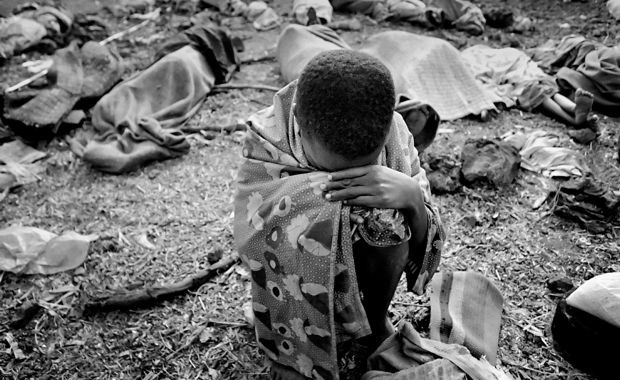
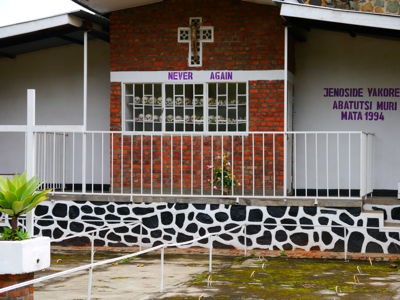 The Genocide Memorial Church in Kibuye, Rwanda. Credit: Erin Jessee
The Genocide Memorial Church in Kibuye, Rwanda. Credit: Erin Jessee
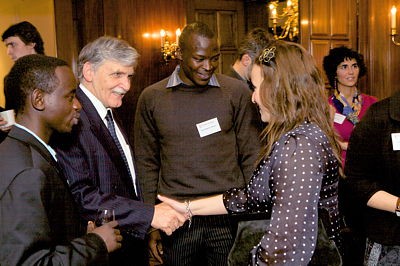 Senator Roméo Dallaire, second from left, is the Distinguished Senior Fellow at MIGS. Credit: Tristan Brand
Senator Roméo Dallaire, second from left, is the Distinguished Senior Fellow at MIGS. Credit: Tristan Brand
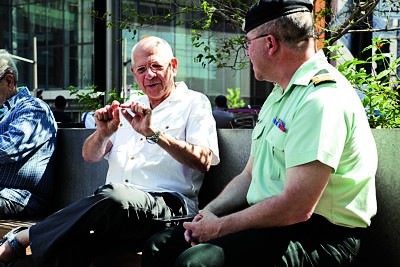 Frank Chalk, left, is director of the Montreal Institute for Genocide and Human Rights Studies, which has established a set of recommendations to help governments intervene in potential genocides. Credit: Concordia University
Frank Chalk, left, is director of the Montreal Institute for Genocide and Human Rights Studies, which has established a set of recommendations to help governments intervene in potential genocides. Credit: Concordia University
